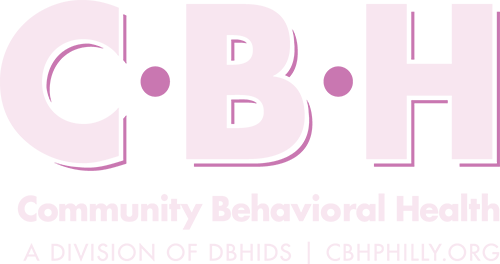Screening Programs
Screening Programs
Community Behavioral Health works to make sure all members are receiving the care and support that they need. This screening program was designed to help with identifying signs of depression and substance use disorder. It is not uncommon for depression and substance abuse to happen at the same time, so these recommended screening tools can be used together to identify both depression and substance use. The Zung Depression Scale has 20 questions that will help identify symptoms of depression and the AUDIT (Alcohol Use Disorders Identification Test) has 10 questions to help identify unhealthy use of alcohol. The links to these screening tools are found below:
The results of the screenings do not necessarily mean you have a certain diagnosis but can be a useful indicator. CBH recommends that you discuss your screening results with a healthcare professional, such as your medical doctor or therapist. If you need help being connected to these services, please contact CBH Member Services.
Please keep in mind that mental health and substance use disorders can be serious and sometimes require emergency help. If you are in an emergency situation, or in immediate danger of hurting yourself or someone else, go to the nearest emergency room or crisis response center, call 911, or call the 24-hour Suicide Crisis and Intervention Line at 215-686-4420.
Tobacco Use Screening Program
CBH is committed to ensuring that all member’s substance use needs are being met, including tobacco use. The use of tobacco products is much more common among adolescents and adults with behavioral health conditions. A quick and easy way to learn whether the use of tobacco products may be a concern is to complete the following questionnaire:
If you need help with completing the questionnaire, please contact CBH Member Services.
You may also share the results of the tobacco use questionnaire with your behavioral health provider, primary care physician, or other healthcare professional.
Self-Management Tools
Personal Health Record
A personal health record (PHR) is a health record maintained by the member/patient that includes medical history, medications, symptoms, and other health information. A PHR is kept online, allowing both the individual and healthcare providers to access it.
Personal Health Records and the HIPPA Privacy Rule (U.S. Department of Health and Human Services)
Below are links to free PHRs developed by different organizations, and there are many others available online. We recommend looking at them and talking to your healthcare provider to choose one that best fits your needs.
Alcohol Use
The following tool will help you assess your use of alcohol. This tool has 10 questions and will take approximately three minutes to finish. At the end of the assessment, the tool will provide you with a score regarding your drinking habits and what this means for you. You will also be able to download information on alcohol use and its impact on your health.
Healthy Weight
The following tool will help you assess your Body Mass Index (BMI). BMI is a measure of body fat. You only need to enter your height and weight. At the end of the assessment, the tool will provide you with your body mass index and what your index means. You will also be able to download information on how to maintain or improve your health.
Depressive Symptoms
The following tool will help you determine if you have any depressive symptoms. This tool has 22 questions and will take approximately three to five minutes to finish. These questions are related to your mood and lifestyle (for example, eating, sleeping, social engagement, etc.). At the end of the assessment, the tool will provide you with a score regarding your depressive symptoms and what this means for you. You will also be able to download information on depression and its impact on your health.
Healthy Eating
The following tool will help you assess your knowledge of how many calories there are in the different types of food items you may eat on a daily basis. This tool has 10 questions and will take approximately three minutes to finish. At the end of the assessment, the tool will provide you with more information on the number of calories present in the different foods you eat. You will also be able to download information on how to improve your eating habits at the end of the assessment.
Stress
The following tool will help you assess the level of stress in your life in the last month. This tool has 10 questions and will take approximately three minutes to finish. At the end of the assessment, the tool will provide you with a score related to your stress level and what this means for you. You will also be able to download information on how to better deal with stress and improve your health.
Smoking and Tobacco
Nicotine is the chemical in cigarettes that makes you want to keep smoking. Finding out how much you depend on nicotine will help you as you choose quit-smoking strategies for your quit plan. Remember—no matter what your score, you’ll have to work hard to quit for good. Answer the following questions. The results will explain how much you depend on nicotine and provide ideas on how to reduce your cravings.
Physical Activity
The following tool asks you questions about your physical activity. The questions also focus on possible barriers that prevent you from exercising. This tool has 21 questions and will take approximately three to five minutes to finish. At the end of the assessment, the tool will provide a score related to your physical activity and the barriers that affect your likelihood of exercising. You will also be able to download information on how to increase the amount of exercise you get and how this can improve your health.
Please Note: While the results of these screenings do not necessarily mean you have a specific diagnosis, they can be a useful indicator. CBH recommends that you discuss your screening results with a healthcare professional such as your medical doctor or therapist. If you need help being connected to these services, please contact CBH Member Services.






